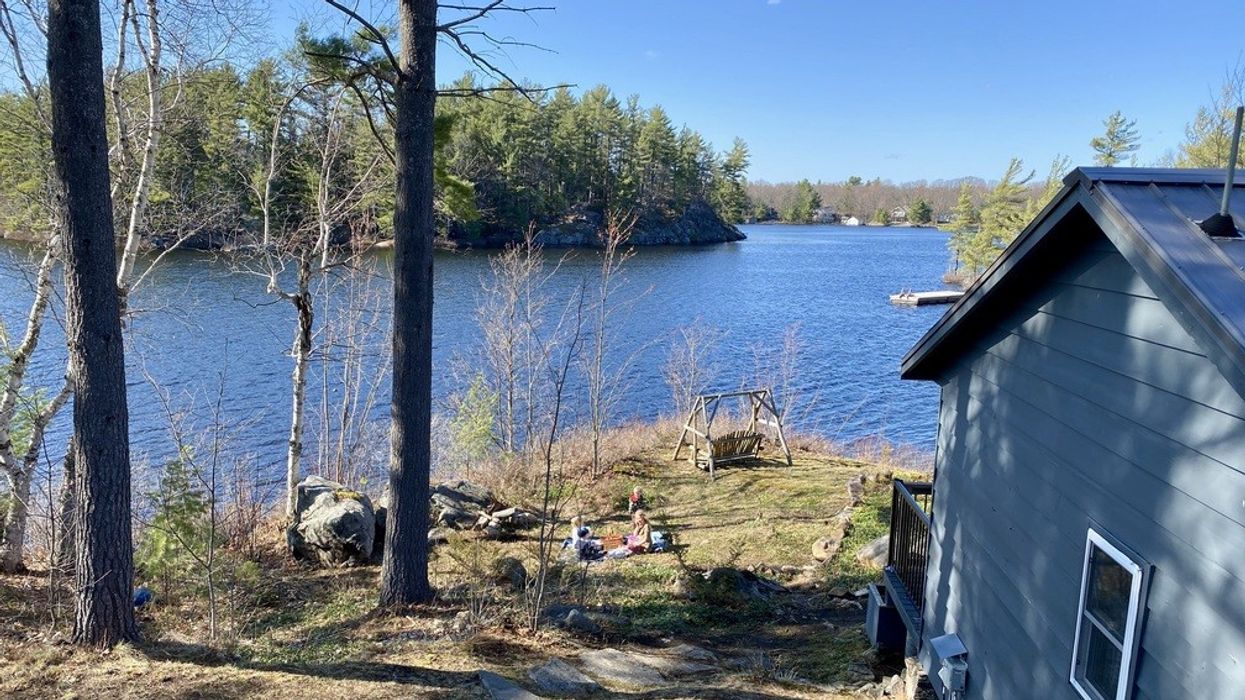Just over a year ago, when COVID-19 officially took over the city, province, and country, my wife and I packed the car to the brim, tossed our two small kids in the back -- figuratively -- and headed to her family cottage to wait out the unknown.
We did this before anyone in government, or any other official place, told people not to overwhelm cottage country. I'm not saying it was the right thing to do, but once there, turning back hardly seemed like the right thing either.
For the next seven weeks we lived in tandem with my sister-in-law's family of five, a tightly-knit bubble at the end of a long gravel road consisting of four parents in their mid-to-late 30s, five children under the age of seven, and one dog too old to care about social distancing.
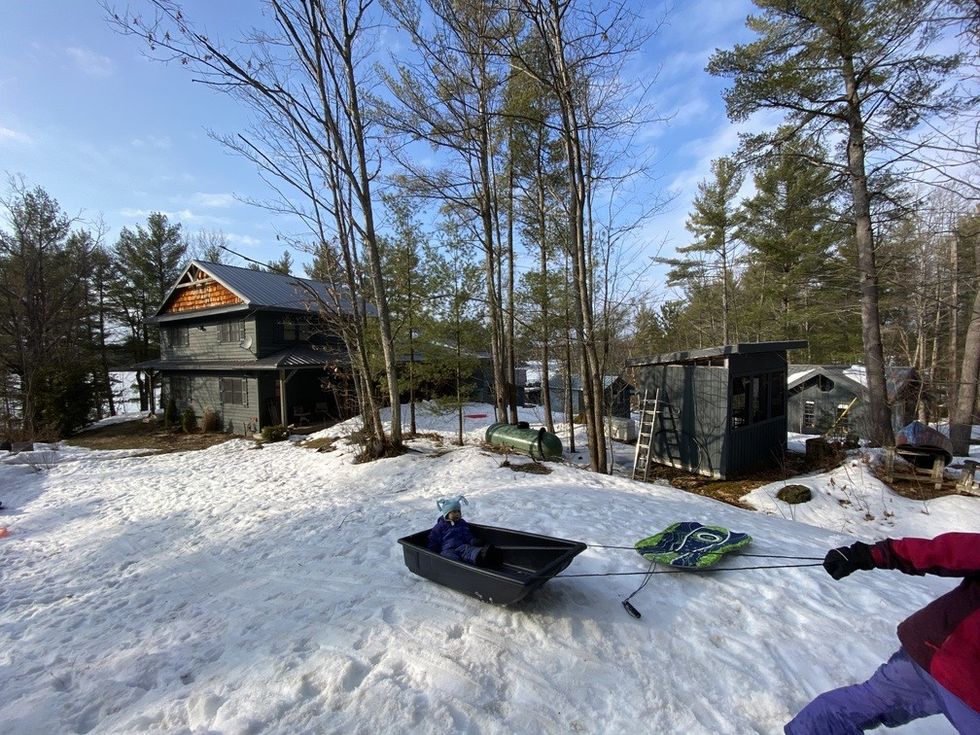
It was a strange and beautiful time for our families. Like everyone else, we were scared, worried, and unsure of what was to come. My wife didn't leave the property for six weeks.
I, on the other hand, started leaving every day.
Trying to get through a work day with the internet service we had was simply impossible. The highest speed our provider could deliver was 5 mega bytes per second (Mbps), but based on speed tests and, well, actual use, it seemed to be dripping in at about 2 Mbps max.
Forget Netflix. Just checking email was a minutes-long experience. Want to upload a photo? You might as well be trying to mine Bitcoin -- it would have the same outcome, which is to say, no outcome at all beyond the spinning wheel of death.
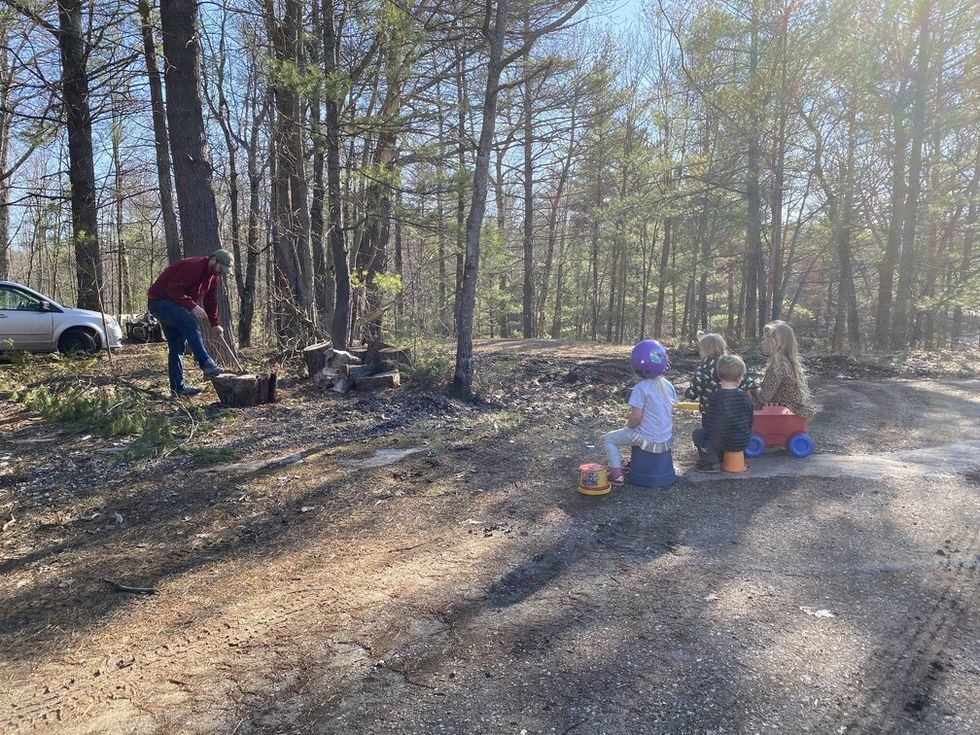
Tethering from my phone got me through the first week or two. After that, the only way to continue working was to pack up every morning and drive into my sister-in-law's empty house 20 minutes away to hook up to their broadband. I wouldn't stop anywhere -- just from the cottage to the house and back again at the end of the day, all in the name of decent internet.
I'm not going to say which provider we currently use in Muskoka, but let's just say they rhyme with 'hell'. And, after weekly phone calls, multiple on-site visits, and little to no improvement in service over the past year, that's pretty much what this relationship feels like.
And Elon Musk is counting on it.
The tech billionaire's Starlink satellite internet service is launching in Ontario cottage country (and several other parts of rural Canada) this year, after finding approval from the CRTC in the fall. And it's expecting to find a strong connection with residents.
"The internet (and for that matter cell phone service) have been a challenge in cottage country for years," says Maryrose Coleman of Sotheby’s International Realty, and owner of Muskoka District Rentals (MDR).
"For MDR's website, we do large photo and video file transfers regularly, I have been forced to use remote staff in Orillia and Bracebridge, and even Toronto, to do this work, as high-speed internet access has not been available or reliable in Port Carling, where I'm based. Ironically Port Carling is known as the centre or hub of the Muskoka Lakes, and has perhaps the worst internet in cottage country!"
This has not gone unnoticed. Indeed, on an article published in The Star last June and then tweeted out by its author Peter Nowak (now Vice-President Insight & Engagement at TekSavvy), real-life Iron Man himself responded with enthusiasm:
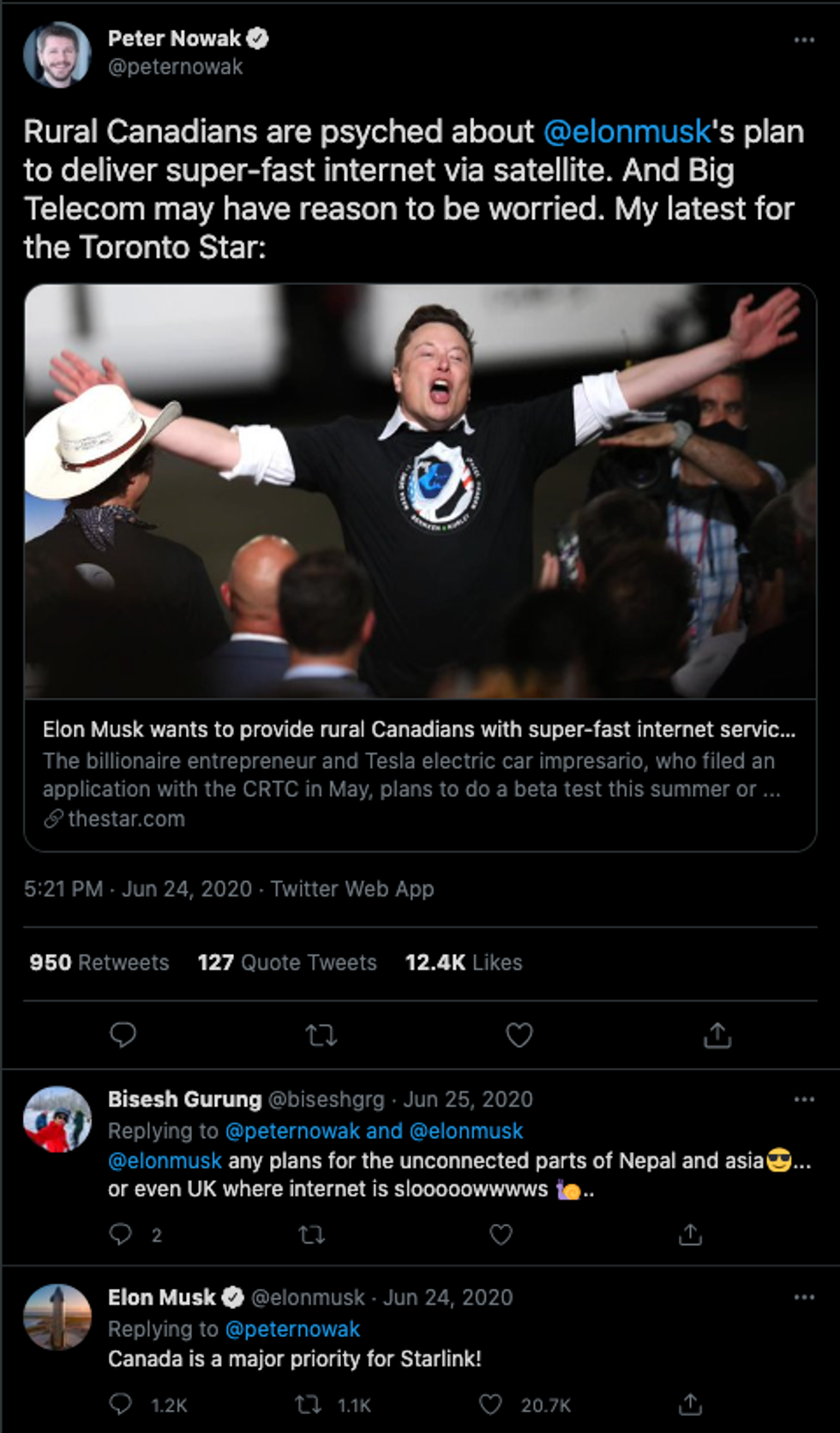
And when Elon tweets, people get excited. So to say there's hope in cottages across Ontario isn't an understatement.
"This is a game changer! While the roll out is not slated until late 2021, once we in cottage country have access to truly reliable and high-speed internet there will be even less need to return to the city. Having access to reliable and fast satellite internet will transform how we live and work and will continue the trend that began in earnest at the start of the pandemic of people working remotely from their cottages and lake houses," Muskoka's Coleman tells us excitedly.
Back in December, when the rise of Cottage Country was our 'Issue of the Year', Marilyn Rogers of Peterborough Homes and Cottages also spoke to us about the type of buyers she was seeing flocking to The Kawarthas and internet speed was top of mind for many of them.
“At one showing, I had a client bring their laptop and log on to the internet to test its speed,” Rogers says. “Many clients no longer need an office… they just need a place with good internet.”
Likewise, realtors Jeff and Jess Wilson of Team Haliburton Highlands cautioned new buyers by adding that “The cell and internet service are two of the biggest things people should be aware of. It’s slow, and there are a lot of no-reception areas.”
The Ontario government agrees that the lack of reliable high-speed internet is an issue in many rural areas, committing a further $2.88B (with a B) in yesterday's Budget 2021 to bring the province's total investment in broadband internet to $4B in an attempt to bring connectivity to all Ontarians by 2025.
For the record, the government wants all Canadians to have access to broadband levels of "at least 50 Mbps for downloads and 10 Mbps for uploads." They also expect this to be the case for 90% of Canadians by the end of 2021. Surely, if this is possible, Mr. Musk will be playing a part.

According to The Star, Starlink is claiming to be able to provide speeds up to "a gigabit per second, or 1,000 Mbps, by using low-earth orbit satellites. LEO satellites operate at between 500 and 2,000 kilometres above the Earth’s surface, or much lower than traditional geostationary counterparts at 36,000 kilometres."
You don't have to drive a Tesla to be able to realize that 1,000 Mbps is a heck of a lot faster than 2 Mbps. So much so that, if delivered, it could become a fundamental contributor to the ongoing recalibration of the work-from-home life, spurred on by COVID, that has led so many to end up in cottage country -- or to try to end up in cottage country -- for the first time.
But speed doesn't come cheap these days. Installation is a cool $650 off the hop, followed by monthly payments of $129. Still, for many in the region, this will be more than worth the cost to be able to reply on up to 1000 Mbps. After all, there's little better option for a mid-day break than a refreshing dip in the lake.
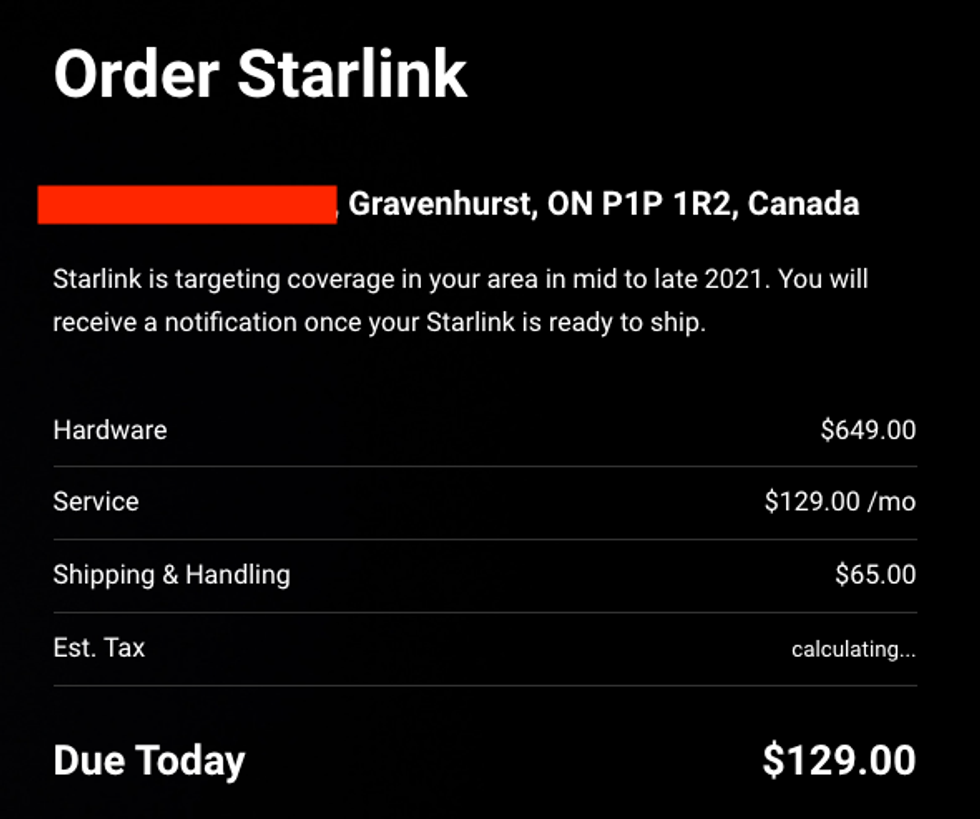
Of course, the argument is available (for anyone who wants it) that what makes cottage life so special is precisely the fact that, more often than not, its spotty reception and poor internet signals force people to disconnect -- from work as much as anything else -- whether they want to or not.
After all, the expression 'summer hours' isn't meant to imply more hours of work or being connected.
In today's hyper-technological world, if the last vestiges of true escape are suddenly, and finally, taken over by streaming services, FaceTime, and all the tiny dopamine surges the next 'gram post bring with them, will that in fact be dope or just, well, a mineshaft of regret?
Two things are for sure. One: People will argue both sides. And two: the next generation to come along already doesn't care; they'll simply be content to scroll on, Mbps against the current, borne back ceaselessly against the past.
